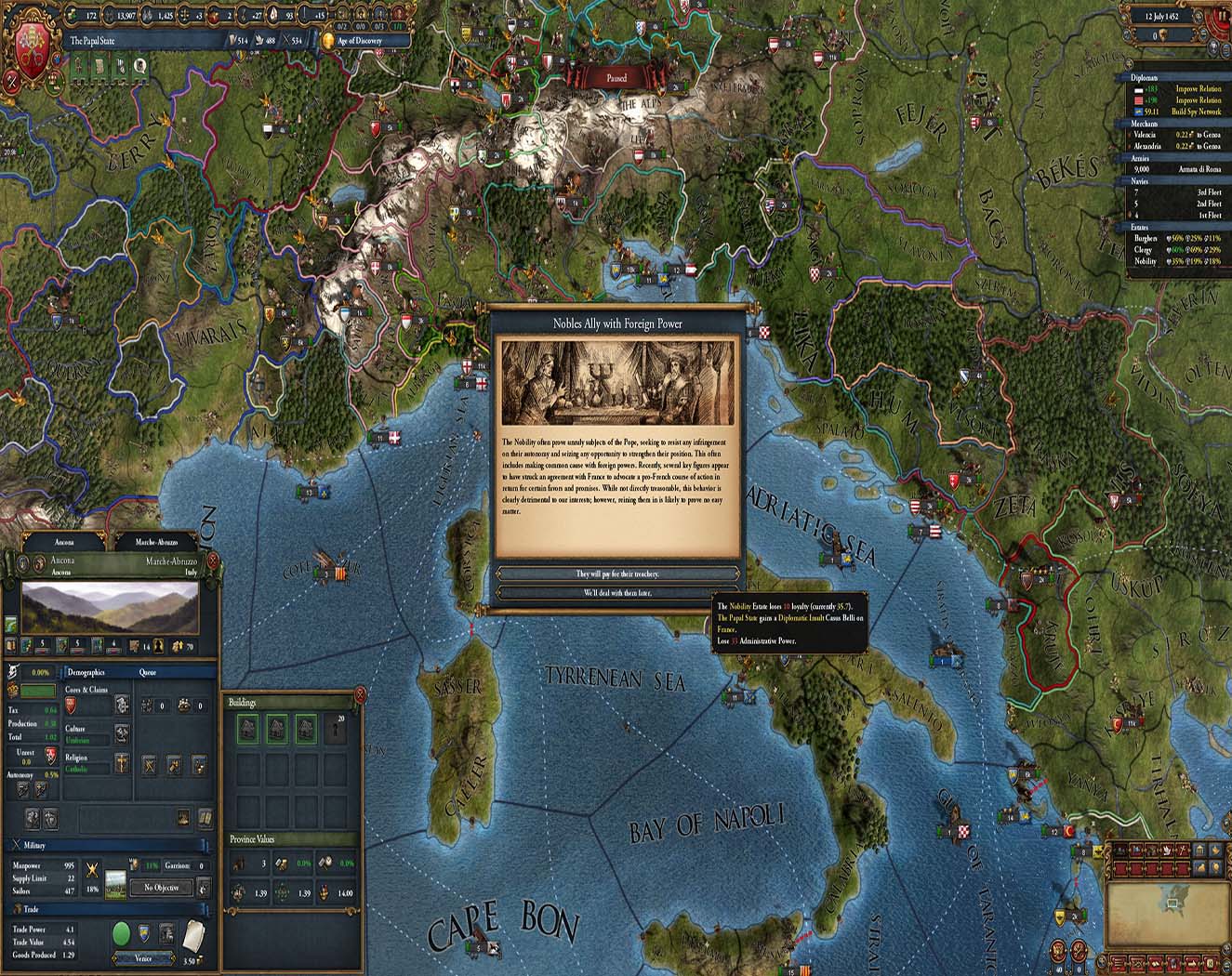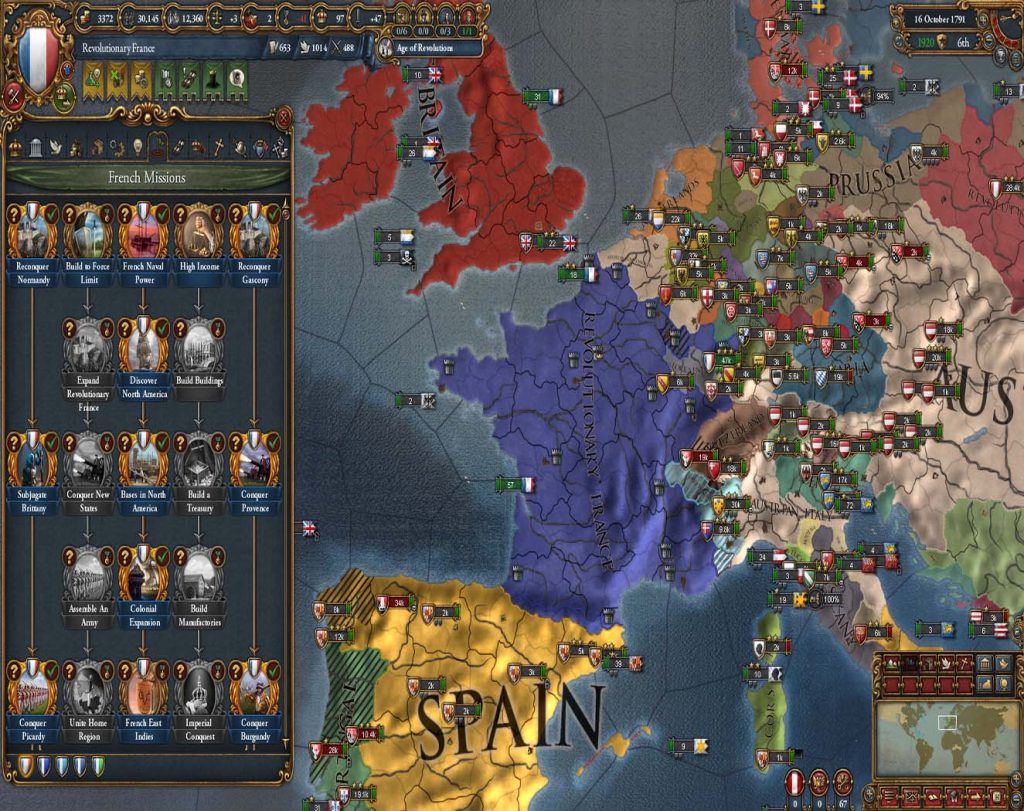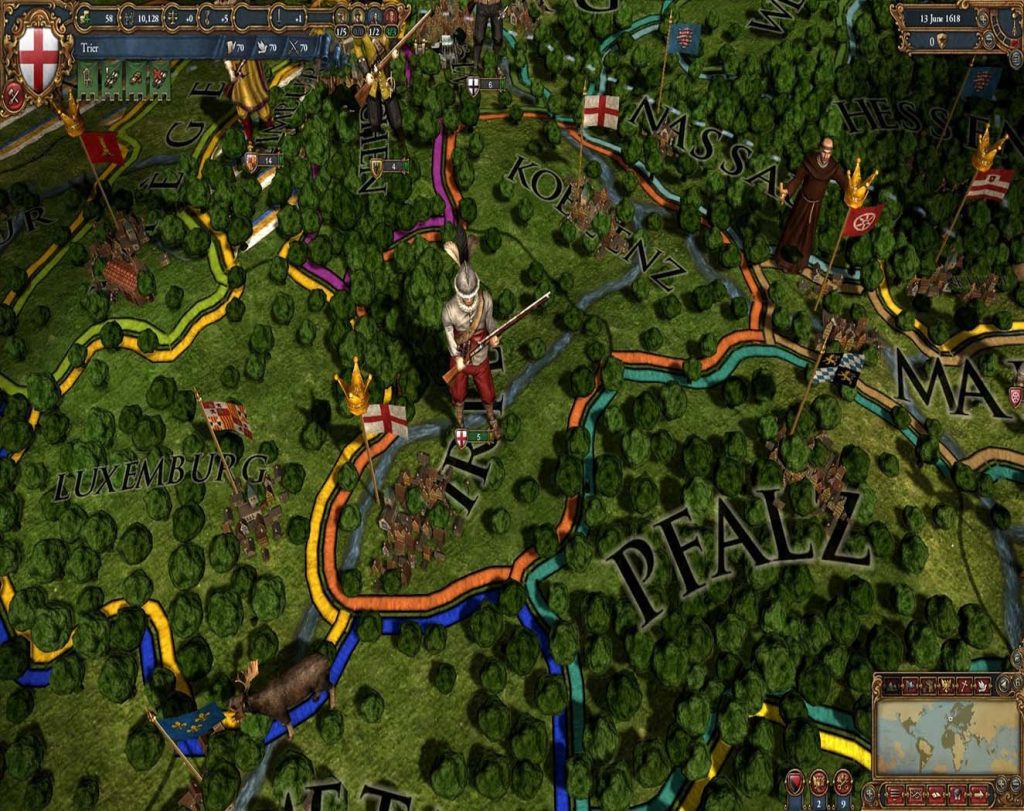
Europa Universalis IV: A Grand Strategy Masterpiece
Europa Universalis IV (EU4), developed by Paradox Interactive, is a grand strategy game that allows players to control a nation and navigate the complex political, military, and economic landscape of the world between 1444 and 1821. Released in 2013, EU4 has grown into one of the most beloved strategy games due to its incredible depth, historical accuracy, and endless replayability. For gamers who enjoy the challenge of leading nations through centuries of change, shaping the course of history, and making tough decisions in diplomacy, trade, and war, EU4 offers an unparalleled experience.
In this blog, I’ll take a deep dive into what makes Europa Universalis IV so special, its key features, and why it remains a fan favorite among grand strategy enthusiasts.
A World of Possibilities: The Basics of EU4
At its core, Europa Universalis IV is a sandbox game where players are free to choose any country in the world and guide it through the centuries. Whether you want to lead a small, fragmented state to greatness, form a massive colonial empire, or unite Europe under a single ruler, EU4 offers limitless possibilities. Each nation comes with its own unique set of challenges and opportunities, shaped by its geography, resources, and historical context.
From the beginning, players are tasked with managing the intricate aspects of their chosen nation: diplomacy, warfare, economics, religion, and internal stability. These systems interact in complex ways, and mastering them is key to success. For example, a nation’s military power might be offset by a weak economy, or religious divisions could cause internal unrest. This balancing act creates a rewarding and immersive experience as players navigate the various challenges that come with ruling a country.
The game begins in 1444, a time when Europe was fragmented by competing kingdoms, the Ottoman Empire was expanding into the Balkans, and the Ming Dynasty ruled over China. As the game progresses, players can explore the Age of Exploration, the Protestant Reformation, the rise of colonial empires, and countless other major historical events. The level of detail and historical accuracy is staggering, and each playthrough offers a different experience depending on the country you choose and the decisions you make.
Features That Set Europa Universalis IV Apart
1. Deep Diplomacy System
One of the most distinctive features of Europa Universalis IV is its robust diplomacy system, which gives players numerous ways to interact with other nations. Diplomacy is not limited to simple alliances and wars; it’s a nuanced system where you can form coalitions, royal marriages, vassalize smaller nations, or even outright annex other countries diplomatically. The diplomatic system encourages strategic thinking, as you must balance relationships with powerful allies, rivals, and potential enemies.
You can use diplomacy to manipulate the balance of power in the world, forming alliances to check the growth of aggressive nations or joining forces to crush a common enemy. However, each diplomatic action comes with its own risks and rewards. For example, forming an alliance with a powerful country can give you protection, but it may also drag you into wars you’d rather avoid. EU4 encourages players to weigh their diplomatic decisions carefully, as even minor actions can have long-lasting consequences.
2. Complex Warfare
While diplomacy is crucial, there will be times when war is inevitable. Europa Universalis IV offers a detailed military system that allows players to wage war on both land and sea. Battles are influenced by several factors, including terrain, unit composition, technology levels, and generals’ skills. The combat mechanics are deep but easy to understand once you get the hang of them. Different nations have access to unique unit types and bonuses, which reflect their historical strengths, such as the Ottoman Janissaries or the English longbowmen.
In addition to outright wars, there are subtler military actions like sieging enemy forts, blockading ports, and raiding coasts, all of which can impact the outcome of a conflict. The warfare system encourages strategic planning—rushing headlong into a war without preparing your economy or army can lead to disaster.
3. Trade and Economics
Economics plays a central role in EU4, and managing your nation’s economy is essential for maintaining stability and growth. Trade routes span the globe, and controlling key nodes can provide a significant boost to your treasury. Players can build trade networks, establish colonies, and direct the flow of goods to maximize profits. Trade is deeply interconnected with warfare and diplomacy—dominating global trade often leads to conflict with other nations seeking to protect their own interests.
In addition to trade, taxation and production provide important sources of income. Balancing spending on military, infrastructure, and diplomacy is a constant challenge, and neglecting your economy can lead to bankruptcy or unrest. The game’s economic system rewards long-term planning and careful management, giving players the tools to build prosperous empires.
4. Religious and Cultural Dynamics

Religion is another key factor in Europa Universalis IV. The game spans an era when religion played a central role in politics and warfare. Players must manage their nation’s religious dynamics, especially during critical events like the Protestant Reformation, which can divide Europe into warring factions. You’ll need to decide whether to adopt new religions, suppress heresy, or use religion as a tool for expanding your influence.
Cultural aspects are also significant. Nations with multiple cultures may face internal unrest, and spreading your culture can strengthen your control over conquered territories. Religious and cultural policies are crucial for maintaining stability in your realm, and failing to manage them properly can lead to revolts, decreased productivity, and loss of territory.
5. Historical Events and Choices
One of the most immersive elements of Europa Universalis IV is the presence of historical events and decisions. Throughout the game, you’ll encounter historically-inspired events that offer unique challenges and opportunities. These events are tailored to specific countries and time periods, ensuring that each playthrough feels connected to the history it portrays.
For example, as England, you may face the War of the Roses or be tempted to invade France. As the Ottomans, you could work to capture Constantinople and expand into Europe. These events provide a sense of narrative, even in a game that is otherwise a sandbox experience. The choices you make during these events can have profound effects on your nation’s future, pushing you towards different paths in history.
Highlights of Europa Universalis IV
1. Endless Replayability
Perhaps the most remarkable feature of Europa Universalis IV is its endless replayability. No two games are ever the same. With over 200 playable nations, the diversity of potential strategies, and the sheer number of events and decisions, every campaign feels like a fresh experience. Whether you want to play as a European power, an African kingdom, or a small Southeast Asian state, each country offers a unique challenge and flavor of gameplay. The extensive modding community also adds to this, creating custom scenarios, mechanics, and even alternate history settings that can enhance your experience.
2. DLC Expansions and Updates
Since its release, Europa Universalis IV has received numerous expansions and content updates, each adding new features, mechanics, and nations to the game. From expansions like Art of War, which overhauled the military system, to Leviathan, which introduced new diplomatic options and mechanics for managing nations, each DLC builds upon the foundation of the game, adding layers of complexity and new ways to play. Paradox Interactive’s commitment to updating and expanding EU4 has helped keep the game fresh for years, ensuring that veteran players always have something new to explore.
3. Multiplayer
While Europa Universalis IV is primarily known for its single-player experience, the game also offers an incredibly engaging multiplayer mode. Competing against real players adds another level of depth, as human opponents are far less predictable than AI. Multiplayer sessions often turn into long-term campaigns, where alliances shift, wars break out, and diplomacy becomes a delicate dance of trust and betrayal. The multiplayer community is passionate, and dedicated players often organize large-scale games that can last for weeks or even months.
Why Europa Universalis IV Is a Must-Play for Strategy Enthusiasts

After more than a decade since its release, Europa Universalis IV remains a masterpiece in the grand strategy genre. Its depth, complexity, and historical authenticity make it a game that rewards patience, strategic thinking, and a love for history. The game’s sandbox nature, combined with its historical events and choices, allows players to create their own alternate histories while staying grounded in real-world dynamics.
Whether you’re a veteran of grand strategy games or a newcomer looking for a challenging and rewarding experience, Europa Universalis IV offers something for everyone. From the thrill of leading a small nation to greatness, to the satisfaction of outmaneuvering rival empires through diplomacy and warfare, EU4 provides countless hours of gameplay that will keep you coming back for more.
If you haven’t yet experienced the joy of guiding a nation through centuries of history in Europa Universalis IV, now is the perfect time to dive in. With its deep mechanics, endless replayability, and active community, it’s no wonder that EU4 has earned its place as one of the greatest strategy games of all time.


